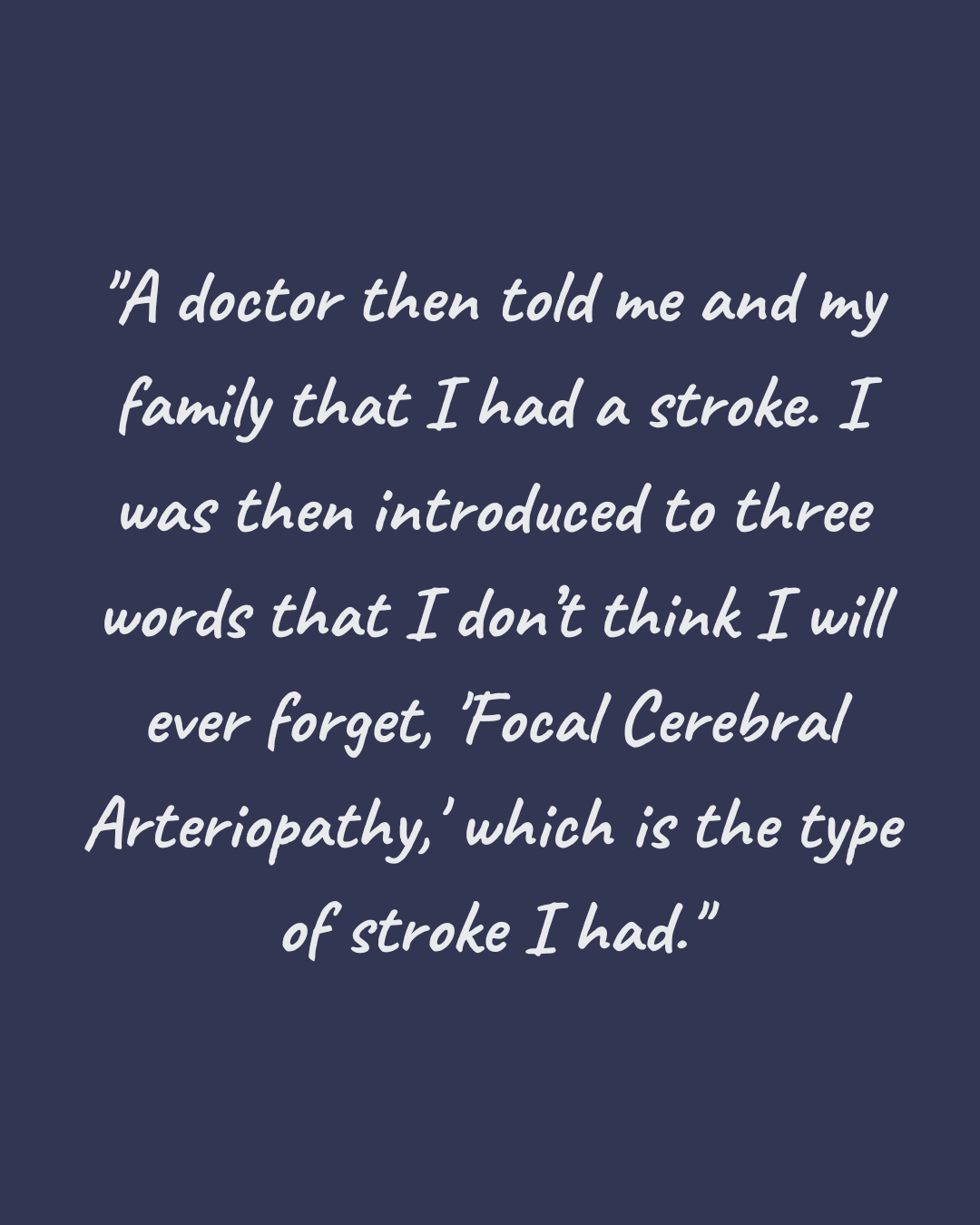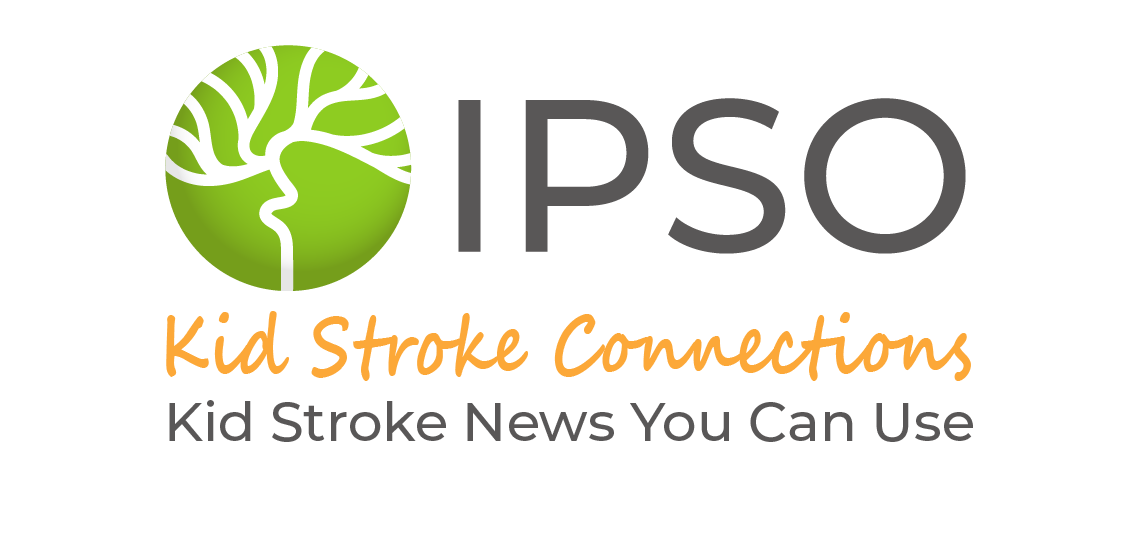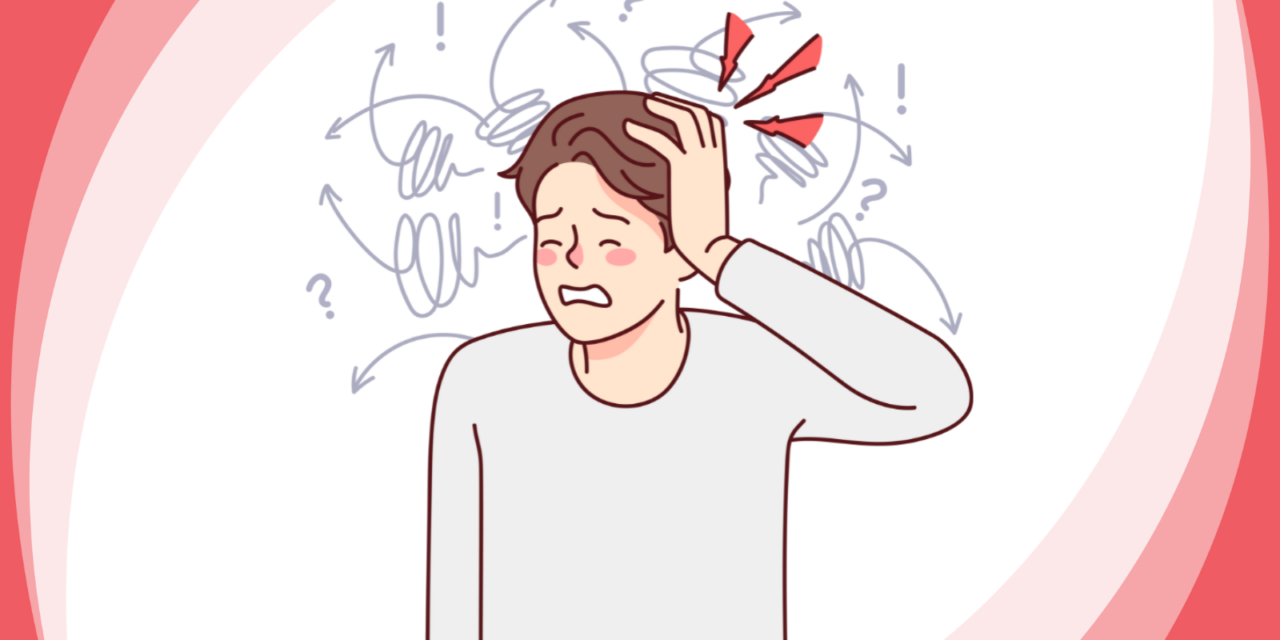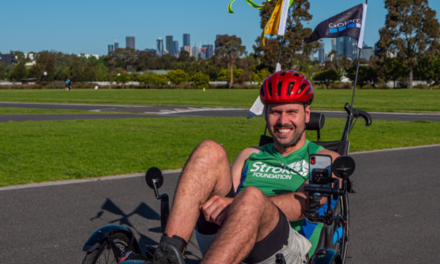by Anonymous
“This is it for me.” That was my first thought when my vision all of a sudden went blurry while I was washing my face. Little did I know that this sudden blurriness was a sign of a stroke and would be the start of a scary and painful journey.
It was a Saturday. Excited to hang out with my friends, I asked my dad to drop me off at the park. I went to the bathroom to freshen myself up. When I started scrubbing my face, out of nowhere, I felt something rush to my head and my vision went completely blurry. Frightened, I started crying, and I told my dad, “Dad my vision is extremely blurry right now, I can’t see a thing!” Trying to stay calm, he tells me, “Here, let’s cancel the plan with your friends, and take some rest. If your vision is still blurry by tomorrow morning, I’ll take you to the hospital.”
The next morning, I woke up with a bad headache and the same blurriness. I panicked, and I told my dad, “Dad, my vision is still blurry!” My dad was scared and told me, “Get in the car! I’m taking you to the hospital.” Holding his hand, he guided me to our car. I remember every moment of that first day. When we arrived in the emergency room, I was told to put on a gown and lie down on a scary-looking bed. A nurse rolled up my sleeve and told me to relax. Suddenly, I felt a needle being pushed into my arm. I started crying because needles are my biggest fear. The nurse then took me to a room with this machine called an “MRI”. The machine took me in and I fell asleep.
 A few hours later, I woke up in a new hospital room. My vision had cleared up a lot. A doctor then told me and my family that I had a stroke. I was then introduced to three words that I don’t think I will ever forget, “Focal Cerebral Arteriopathy,” which is the type of stroke I had. At first I had to lay flat on my bed. After this, I was finally allowed to start sitting up again. Then I was told I could start standing, which later turned into walking. Day after day passed by, and after 28 days from when I was first admitted to the hospital, I was finally free to go home.
A few hours later, I woke up in a new hospital room. My vision had cleared up a lot. A doctor then told me and my family that I had a stroke. I was then introduced to three words that I don’t think I will ever forget, “Focal Cerebral Arteriopathy,” which is the type of stroke I had. At first I had to lay flat on my bed. After this, I was finally allowed to start sitting up again. Then I was told I could start standing, which later turned into walking. Day after day passed by, and after 28 days from when I was first admitted to the hospital, I was finally free to go home.
At home, I started crying after first laying down in my bed after a month. Unfortunately, my parents told me that I could not hang out with my friends or go to school for a while. Five months after leaving the hospital, I got good news that I could finally start going to school again. As time passed, I started feeling more and more normal.
It has been a long journey. Now, a year after that day I was washing my face, my life is essentially back to how it was before that day. I realize how grateful I am for the doctors and other people who treated me in the hospital. Looking back, while I hated every single day I spent in the hospital, if it weren’t for these people who are devoted to taking care of kids with strokes, my reality would’ve been true to that first thought I had of “This is it for me.”
If you are a kid or love someone who has been affected by a stroke, what I would like you to know is that it may seem like the end of the world now, but it will get better, no matter how unlikely it seems. Just stay strong, and just believe that there is a good outcome from all this.
____________________________________________________________________________
Focal cerebral arteriopathy (or FCA) is the most common cause of arterial ischemic stroke in an otherwise healthy child. It is also a uniquely pediatric disease, rarely reported in very young adults. The treatment of FCA with corticosteroids is now being studied in two multicenter pediatric stroke clinical trials: the PASTA trial in Europe and Australia, and the FOCAS trial in the U.S.A. and Canada. We thank this pediatric stroke survivor—a teenaged boy in California—for sharing his experience with FCA.
Sincerely,
Heather Fullerton, MD, MAS
IPSO President & FOCAS Principal Investigator
Graphics: Sravya Jaladanki, M.D Candidate
Community Editor: Kathleen Colao, MPH, CCRP



